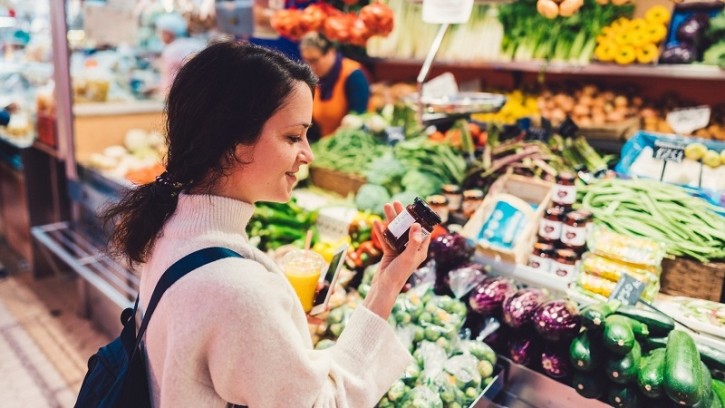Gen Z shoppers will ‘be the greenest shopper yet,’ Non-GMO Project shares in latest awareness data

"Natural shoppers have always believed that good food is wholesome and nutritious. After all, we used to call this the health-food industry, and personal health is still the number one driver for natural shoppers, but this interest is really expanding," said. "It's growing up; it's really maturing, and in many senses ... it's growing younger."
Awareness of organic, non-GMO remains high
Each year, the Non-GMO Project surveys consumers to gauge awareness on the Non-GMO label, various sustainability and health claims, and their thoughts on food quality and animal welfare. In the 2023 survey, the organization asked about 750 shoppers, including 150 millennials, roughly 200 questions.
Most consumers are aware of non-GMO and organic claims, with 88% of consumers saying they are aware or somewhat familiar with organic attributes, and 70% for non-GMO, up slightly from August 2021 of 69%.
While awareness is high, consumers say the two claims aren't as important when buying foods compared to previous years. In the 2023 results, 30% of consumers said non-GMO was important when buying food, compared to a high of 32% in 2021 and 2019, and 31% said the same about organic, down from a high of 33% in 2021.
When it comes to awareness of specific certifications, 72% of consumers were aware of the USDA Organic seal, and 66% were aware of the Non-GMO Project Verified label. Additionally, 47% of consumers were more likely to purchase a product that is USDA Organic certified, and 43% said the same for Non-GMO Project Verified.
“[Natural shoppers are] looking more closely at packages and labels. They're looking for a number of attributes, not just focusing on one. So, for example, they might be interested in eating more plant-based foods and yet they might still be eating eggs, meat, and dairy, but they're going to be wanting animal products that are organic or free range.”
Millennials might be the strongest natural shoppers for now
Millennials are more aware of non-GMO attributes and certificates and are more willing to buy a premium for them. Most millennials (81%) were familiar with non-GMO attributes, and 80% recognized the Non-GMO Project Verified label, higher than Gen Z, Gen X, and Baby Boomers. Similarly, 54% said the certification makes them more likely to purchase certified items, and 71% are willing to pay a premium for the certified products.
Though a majority of baby boomers are familiar with non-GMO attributes (66%) and recognize the Non-GMO Project Verified label (57%), they are least likely to factor it into their purchase decisions, with 38% saying the Non-GMO label increases their purchase intent, and 39% said they are willing to pay a premium for it.
“Millennials are the largest generation in history, and younger shoppers are more diverse in terms of ethnicity and gender, and they have higher incomes ... because of the life stage that they're in. They also have higher debt because they're more educated than previous generations of natural shoppers ... which can really factor into marketing considerations around them.”
While not at the level of millennial consumers, Gen Z shoppers are likely to turn to natural options, as they think "more holistically" about health and environmental issues, including climate change and loss of biodiversity, Eisenbeis said.
Per the 2023 survey, 69% of Gen Z shoppers are familiar with non-GMO attributes, and 75% recognize the certificate. About half (53%) of Gen Z consumers say Non-GMO Project Verified increases their purchase intent, and 69% are willing to pay a premium.
“Given that millennials and Gen Xers are done growing as a generation, and we're just beginning to see Gen Z reach that age of adulthood when they're making their own purchase decisions, we think ultimately Gen Z will be the greenest shopper yet.”




